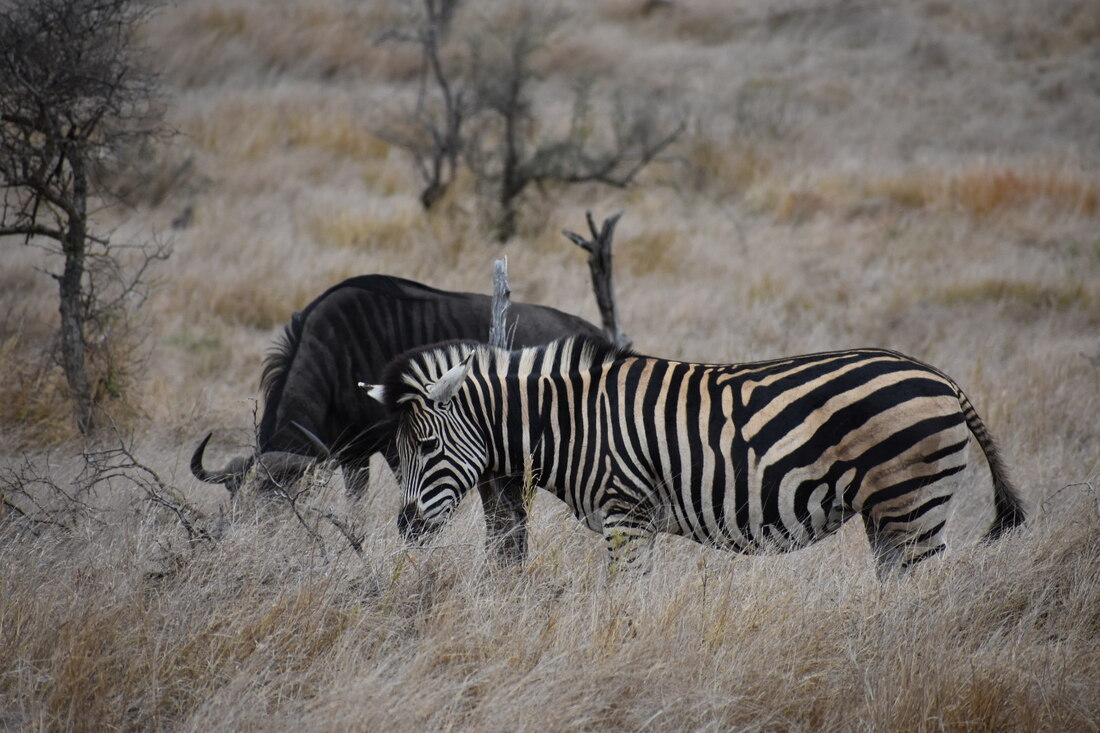|
When I stepped off the plane in Dulles, VA back in November, the icy breeze came as a huge shock. This is figurative, of course. My plane had one of those hallway things attached to it, and I didn't get my first taste of the Virginia fall air until my parents picked me up at the Arrivals terminal an hour later. Still, it was a shock---only three days before, I had been enjoying the onset of the hot wet season in Kruger, braving 100-degree days (38-degree, for my Celsius-minded friends) to help Kruger researchers set up soil probes, speaker systems, and trail cameras. Even now, a month out from my return, I still expect to step outside into a blast of heat.
As any ecologist will tell you, the return from the field comes with its own culture shock and dreamlike reflections. I won't try to cover everything in just one post, but instead focus each snippet on one thing that I learned about myself during the course of my month-and-a-half in Kruger. Today's theme: What does it mean to be an ecologist? Or, rather, what does it mean to me? My PhD journey so far has been marked by my struggles to answer this question. As a mathematician and computer programmer, I mostly defined myself by what I could do, and my mental flexibility to find elegant solutions to computational problems. It has taken me a long while to rediscover a meaning behind my title; in fact, it took me over two years to become comfortable with calling myself an "ecologist". Being at Kruger, though, has finally settled this piece of me. I've learned that being an ecologist is not about what you know, but how you approach the world. It means asking questions about the workings of things, pondering the larger cycles and considering both the past and the future of a system with equal weight. It is a special state of mind, an exciting realization that I get to study how this planet works, on every level, for the rest of my life. No matter what I do in my future, I have finally discovered my "ecologist brain"---a brain that can chew on small and large processes, long and short time spans, all at once---hiding in plain sight all along.
0 Comments
Leave a Reply. |
like it says on the tin. Categories
All
Archives
May 2024
|

 RSS Feed
RSS Feed